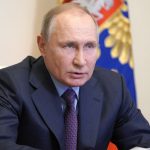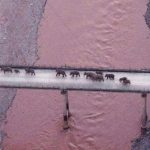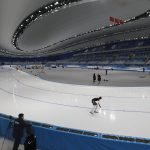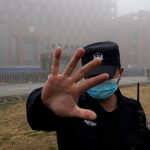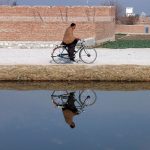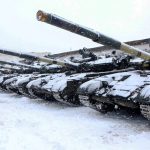Iran has begun the process of producing enriched uranium metal, the United Nations atomic watchdog has said.
A confidential report from the International Atomic Energy Agency (IAEA) revealed on Tuesday that Iran had taken the step, which could help it develop a nuclear weapon.
Tehran has claimed the move is part of plans to develop fuel for a research reactor.
But European and US officials have warned the decision will complicate, and potentially torpedo, recent negotiations to revive the 2015 nuclear deal abandoned by former president Donald Trump.
The UK, France and Germany said they have “grave concern” about the action, while the US described it as an “unfortunate step backwards”.
The 2015 deal imposed curbs on Iran’s nuclear programme to make it harder for Tehran to develop fissile material for nuclear weapons in return for the lifting of economic sanctions.
After Mr Trump withdrew, Iran began violating many of the restrictions and has already produced a small amount of uranium metal this year that was not enriched.
The IAEA said in a statement: “Today, Iran informed the Agency that UO2 (uranium oxide) enriched up to 20% U-235 would be shipped to the R&D laboratory at the Fuel Fabrication Plant in Esfahan, where it would be converted to UF4 (uranium tetrafluoride) and then to uranium metal enriched to 20% U-235, before using it to manufacture the fuel.”
In a joint statement with France and Germany, the UK Foreign Office said: “Iran has no credible civilian need for uranium metal R&D and production, which are a key step in the development of a nuclear weapon.
“With its latest steps, Iran is threatening a successful outcome to the Vienna talks despite the progress achieved in six rounds of negotiations.”
The three European countries also urged Iran to return to the talks in Vienna which began in April and adjourned on 20 June without a date for the next round set.
US State Department spokesperson Ned Price said Washington found it “worrying” that Iran was continuing to violate the agreement “especially with experiments that have value for nuclear weapons research”.
“It’s another unfortunate step backwards for Iran,” he added.



